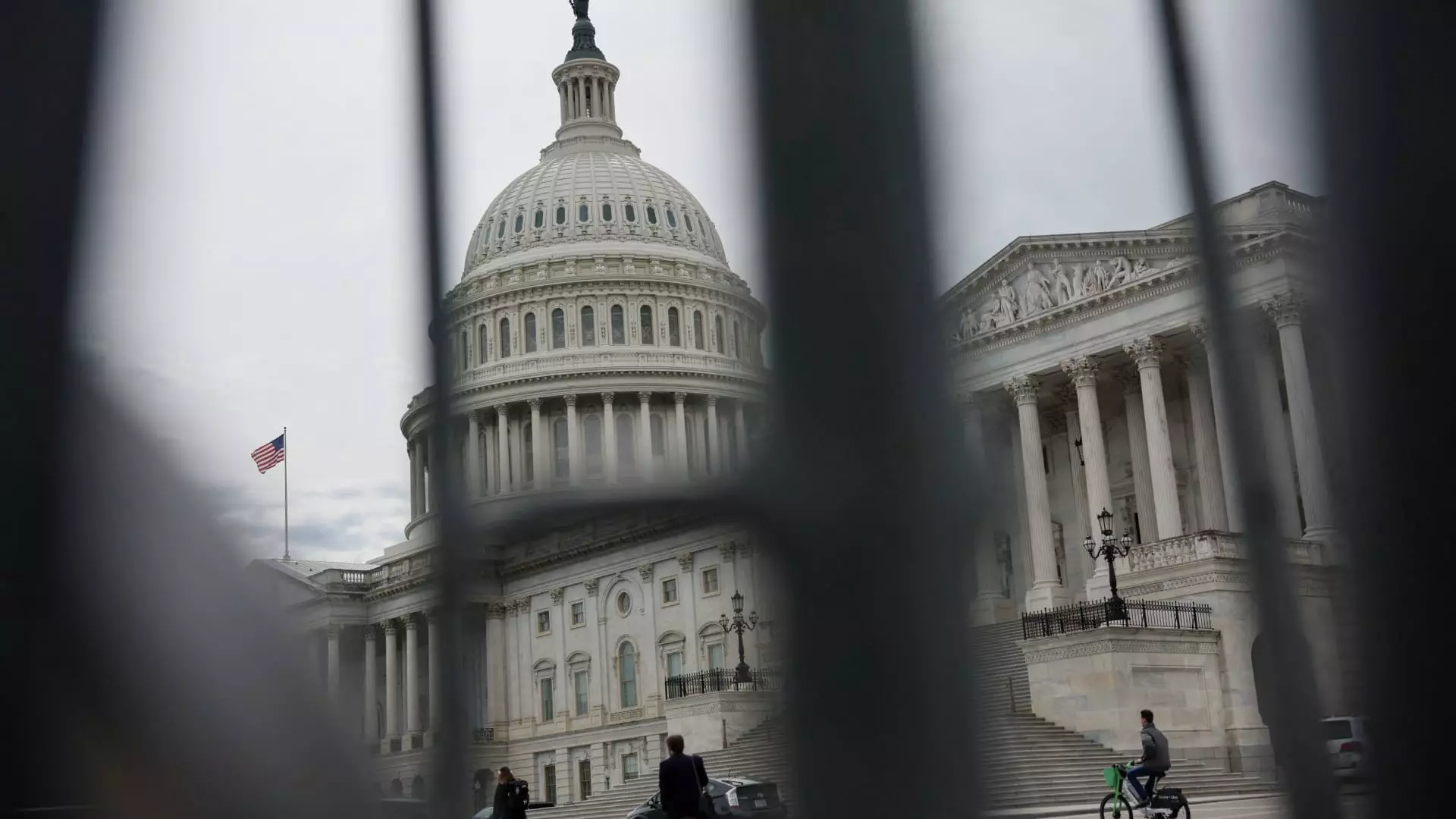The recent U.S. Senate vote to approve a Republican budget plan marks a pivotal moment in American fiscal policy, one that raises eyebrows and significant concerns. This budget blueprint, which seeks to extend the tax cuts originally initiated by President Donald Trump in 2017, presents itself as a moment of economic recovery, cloaked in the guise of a savior for taxpayers. However, a more analytical gaze reveals a disconcerting narrative aimed at funneling wealth toward the top echelons of society, while inviting catastrophic debt increases that threaten the stability of crucial programs like Medicaid.
The Senate’s decision to unlock a budget maneuver allowing for the passage of tax legislation without the need for Democratic votes raises serious questioning. What will it actually mean for the common American? By circumventing bipartisan support, the GOP seems bent on consolidating power around policies that favor the wealthy at the expense of fiscal responsibility. The non-partisan assessment points to an alarming addition of approximately $5.7 trillion to the federal debt over the next decade, while Republicans maintain it’s merely a $1.5 trillion consequence. A transparent strain of cognitive dissonance emerges—one that is emblematic of a deeper, systemic issue endemic in political dialogues today.
The Fabrication of Fiscal Discipline
The Republican budget proposal promises to raise the federal debt ceiling by $5 trillion, which might sound innocuous on the surface. Yet, let’s not forget the stakes involved—the potential default on an existing debt of $36.6 trillion. How can a party claim to champion fiscal responsibility while embracing such obscene borrowing? The mathematics doesn’t add up, and it certainly raises the question of integrity within the party’s leadership. Even Senator Rand Paul’s dissent points to the confusion prevailing in conservative ranks. How do Republicans reconcile their stated goal of spending cuts with an apparent expansion of debt? This is an unconvincing narrative that disenfranchises American citizens yet again.
Republicans insist that the only credible way to offset the ramifications of tax cuts is by slashing government spending, a move that places essential services on the chopping block. Once again, we witness the ugliest side of economic policy: the typical scapegoating of low-income programs such as Medicaid. Such a proposal, arguably punitive in nature, threatens basic healthcare provisions for millions, especially children. Senator Bernie Sanders’ commentary identifying the dangerous trajectory of these cuts offers a sobering reality check. It’s not merely about numbers; it’s about lives disrupted and families thrown into chaos.
The Crux of the Crisis: The Wealthy’s Windfall
At the heart of this budget maneuvering is an unsettling notion—the transfer of wealth from the middle class to the ultra-rich through tax cuts at the top. The Republicans have successfully framed the narrative such that the average American is led to fear a tax hike if these cuts expire. Senator Lindsey Graham’s warning of an impending ‘22% tax hike’ rings hollow when juxtaposed against the disproportionate benefits of the 2017 tax cuts, which heavily favored large corporations and the affluent.
This situation presents a systemic failure—the prioritization of tax cuts over tangible social programs. When America is grappling with pressing needs for affordable healthcare, housing, and education, the administration continues to push forward policies that exploit a favorable political climate to the detriment of essential public services. The implications of this focus are dire, leaving a growing wealth gap and escalating public dissatisfaction in its wake.
The Dynamics of Political Maneuvering
As discussions and potential amendments to this contentious budget plan move to the House, the underlying tensions cannot be understated. Democrats have sought to propose amendments that would protect vital social programs like Social Security. However, these proposals have been largely blocked by their Republican counterparts, emphasizing an unwillingness to engage in meaningful bipartisan dialogue. What’s at stake here is not merely policy, but who truly holds power over the future well-being of American families.
This $880 billion cut to Medicaid becomes a symbolic battleground, where ideals about what America represents are put to the test. Do we prioritize economic gains at the expense of vulnerable populations? Will a few dollars saved on government spending justify the immense suffering of millions? These are uncomfortable questions that the current Republican leadership seems unprepared to confront as they pursue their ideological agenda.
What we have before us is a stark choice between competing visions of America: a nation that upholds its commitment to its citizens’ welfare or one that panders to elite interests cloaked in the rhetoric of fiscal conservatism. It’s time for open discourse and reflection, away from economic platitudes that have proven time and time again to falter in their promises.

